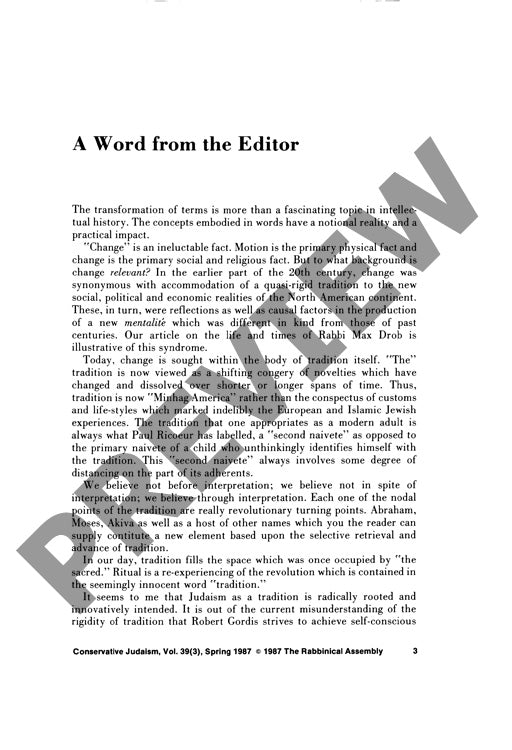A Word from the Editor
Couldn't load pickup availability
This editorial examines the evolving conceptualization of tradition within Jewish thought, particularly in the context of Conservative Judaism. The analysis employs a historical and philosophical methodology, tracing the transformation of the concept of "change" from early 20th-century accommodation strategies to contemporary reformulations of tradition itself. The study draws upon Paul Ricoeur's theoretical framework of "second naivete" to explain how modern adherents engage with tradition through interpretive distance rather than unreflective acceptance. Key findings reveal that tradition has replaced "the sacred" as the primary organizing principle in contemporary Jewish practice, with ritual serving as a re-experiencing of revolutionary moments embedded within seemingly stable traditional forms. The research demonstrates that Judaism operates through a dialectical process that is simultaneously "radically rooted and innovatively intended," wherein historical figures like Abraham, Moses, and Akiva represent revolutionary turning points achieved through selective retrieval and advancement of existing traditions. The study concludes that Conservative Judaism's ideology emerges from this dynamic understanding of tradition as normative yet self-critical, offering both stability and direction while maintaining capacity for renewal and reinterpretation.

More Information
-
Physical Description
-
Publication Information
Published 1987
ISBN
-
Publication Credits
David Silverman

